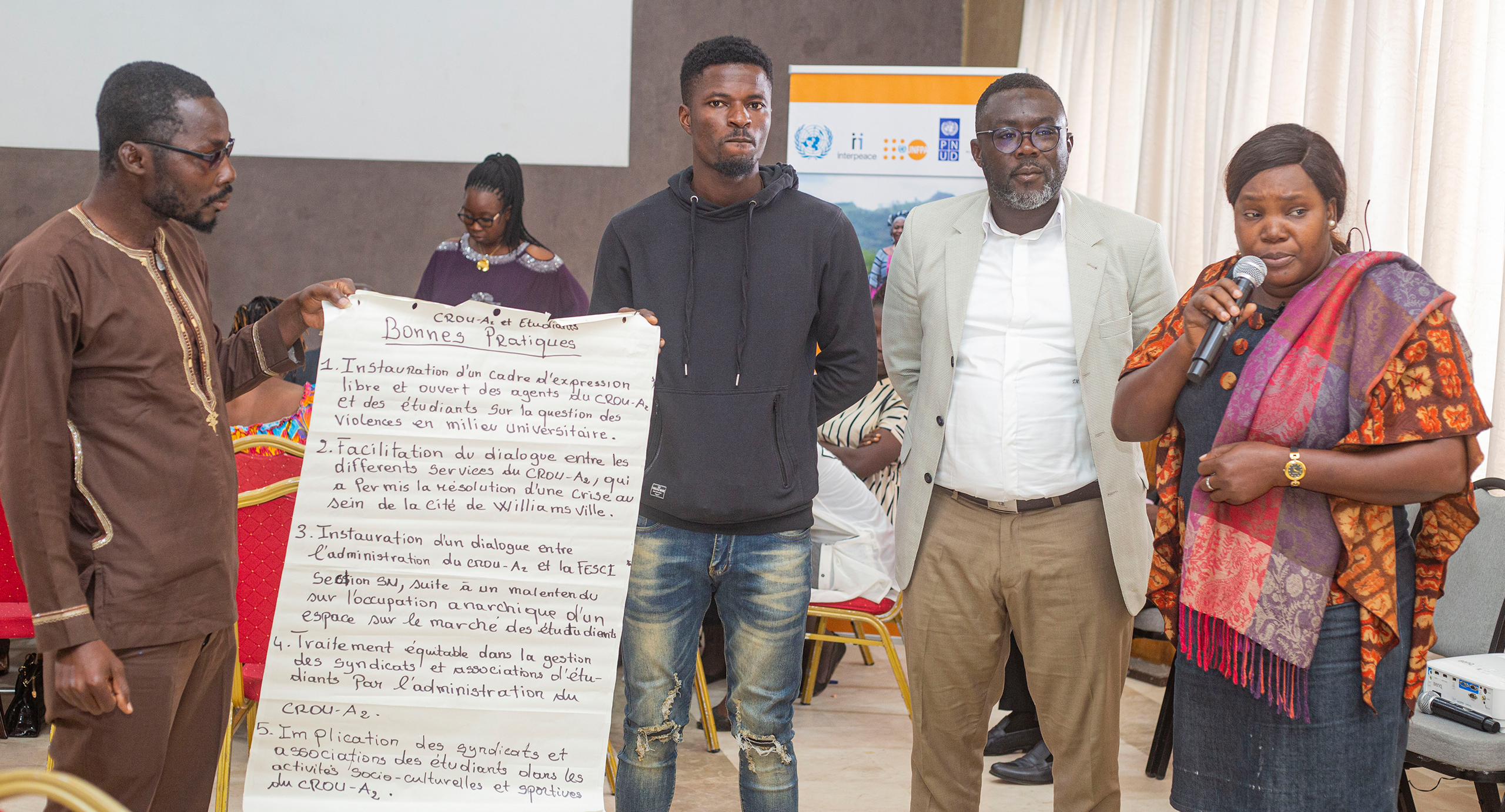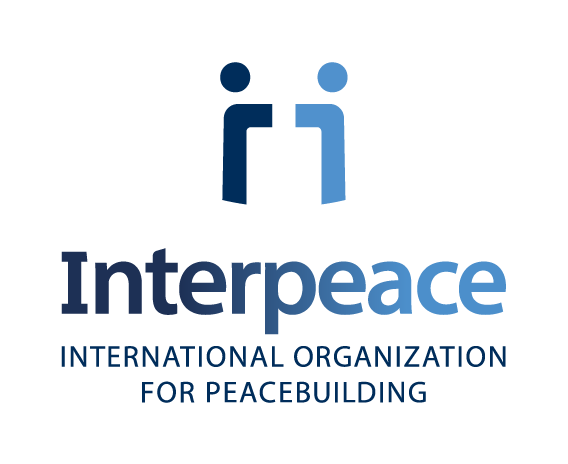Working with students to create a safer environment in Côte d’Ivoire’s universities.

Working with students to create a safer environment in Côte d’Ivoire’s universities.
Since the 1990s, universities in Côte d’Ivoire have been much affected by violence, particularly during electoral periods. This has created conflicts and tensions that have affected the lives of students.
A joint initiative by the UNFPA, UNDP and Interpeace, in partnership with Indigo Côte d’Ivoire, has helped to prevent and manage conflicts in university environments using participatory mechanisms that promote positive leadership and ultimately influence social peace and governance. The initiative is being piloted in three universities in Abidjan: Félix Houphouët-Boigny University, Nangui Abrogoua University, and Alassane Ouattara University.
To understand the causes of conflict and the dynamics of violence in these university spaces, Interpeace and Indigo Côte d’Ivoire ran a participatory action research (PAR) process in 2021 with 1,366 students, teachers, and administrative and technical staff. The consultations and dialogue sessions highlighted factors of resilience that could prevent and mitigate conflicts. The PAR results and recommendations were used to develop an action plan for each university. The plans included peace initiatives and the creation of a framework for inclusive exchange and dialogue between all university members.

In 2022, teachers, students and staff of the three universities came together for three days to create a road map to implement the plans. By supporting and strengthening students’ capacity to prevent and manage conflict, the initiative also contributed to reducing the ability of political parties to mobilise students to commit political violence during electoral periods.
One of the student representatives at Alassane Ouattara University reported that the project had helped participants to “improve consideration for certain actors”, who had previously been viewed negatively by students. A participant from Nangui Abrogoua University said, “We are using words more than muscles.” On the issue of strengthening ties and improving communication between university stakeholders, a professor underlined the importance of “collaboration between groups that, so far, have not been speaking to one another”.
This project is the first of its kind in Côte d'Ivoire. Universities here were not the target of peacebuilding interventions, and activities such as dialogues, PAR, and mediation and conflict prevention processes were unfamiliar.
The Centre des OEuvres Universitaires (CROU) at the Félix Houphouët Boigny and Nangui Abrogoua Universities has recognised that universities need to be more responsive to the needs of different university actors, but must also anticipate and react when conflicts form in the university space. Students who have learned the roles and responsibilities of different actors can now make better use of the various decision-making instances in their universities to communicate their ideas, propose initiatives and address challenges. In addition, through the dialogue sessions and other peace-sensitive initiatives, students have strengthened their capacity for leadership.
